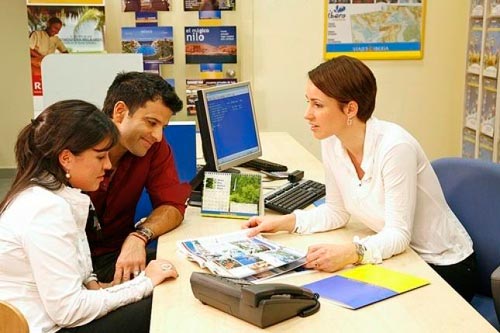In the digital era, tourism branding strategies have evolved from simple promotional tools into engines that drive the conversion of bookings into memorable experiences. In the competitive world of tourism marketing, destinations must go beyond showcasing their attractions. They need to create a strong brand identity supported by strategic communication solutions that emotionally connect with travelers and guide them from initial curiosity to final booking.
This article explores how digital strategies are transforming the way tourist destinations attract and retain visitors, highlighting the journey from branding to booking.

Tourism Branding: First Impressions Matter
Tourism branding not only defines a destination’s identity but also establishes the promise of the experience travelers will have. A destination with a strong brand is more likely to be remembered and ultimately chosen over others. However, the true test of successful branding lies not only in the awareness it generates but in how it converts initial interest into an unforgettable tourism experience.
Effective branding must align with the expectations of the modern traveler, who values authenticity, sustainability, and emotional connection. Tourism communication strategies should tell a story that evokes emotions, inspires adventures, and positions the destination as a must-visit option.
Digital Strategies That Turn Branding into Bookings
The leap from branding to booking doesn’t happen by chance. It requires strategic communication solutions that integrate technology, creativity, and a deep understanding of traveler desires. Here we examine the most effective strategies destinations can use to transform their branding into actual bookings:
-
Digital Marketing for Tourism: A Global Gateway
Digital marketing for tourism offers destinations a global platform to connect with potential travelers worldwide. Through tools like advanced audience segmentation, retargeting, and social media campaigns, destinations can deliver messages to the right people at the right time.
Paid advertising campaigns on Google, Facebook, and Instagram enable destinations to engage travelers who have already shown interest in similar places. By personalizing ads based on user preferences, tourism communication strategies become far more effective, increasing conversion potential.
-
Visually Impactful Tourism Content
Tourism content is the heart of any digital strategy. Photos, videos, and reviews play a crucial role in travelers’ decision-making. Destinations must ensure their content is visually appealing, informative, and SEO-optimized to make it easier for travelers to find the destination during online searches.
Short videos showcasing tourism experiences such as natural landscape tours, cultural activities, or even interviews with locals can be especially effective. These videos not only capture attention but invite travelers to imagine themselves enjoying those very experiences.
-
Experiential Marketing: From Inspiration to Action
Experiential marketing aims to transform the mere visualization of a destination into an immersive mental experience. This type of marketing focuses on creating a tangible desire to live the destination. Through virtual reality (VR), interactive tours, and immersive content, destinations can allow travelers to explore virtually before booking.
One advantage of experiential marketing is that it not only captures travelers’ attention but emotionally places them in the location, facilitating the shift from inspiration to action: the booking.
-
Effective Tourism Promotion: Beyond Ads
Tourism promotion in the digital age requires more than eye-catching ads. It involves engaging travelers throughout the decision-making process, using personalized and consistent messaging that accompanies users from first contact to final booking.
Additionally, tourism advertising should be supported by authentic testimonials, traveler recommendations, and user-generated content. Real reviews and experiences shared through social media or review platforms are powerful persuasive tools that increase trust in the destination.
-
Tourism Destination Management: Delivering the Promised Experience
Once branding has captured attention and digital marketing has driven the booking, destination management must ensure that experiences meet expectations. If a destination is promoted as a tranquil, sustainable getaway, it is vital that travelers find that peace and connection with nature upon arrival.
A destination’s success doesn’t end with the booking; it extends to the lived experience. Efficient destination management is key to ensuring the promises made in branding and promotional campaigns are fulfilled during the traveler’s stay. This not only guarantees visitor satisfaction but also encourages positive word-of-mouth and loyalty.
Sustainable Tourism: An Added Value in Branding
Sustainable tourism is a growing trend, and many travelers appreciate destinations that demonstrate a commitment to environmental conservation and respect for local communities. Including sustainability as a central component of tourism branding is not only an effective strategy to attract responsible tourists but can also be a key differentiator in a saturated market.
Destinations that integrate sustainable practices into their communication solutions not only attract more travelers but also contribute to the preservation of natural and cultural resources.
Strategic Communication Solutions: The Art of Conversion
Strategic communication solutions should not only focus on attracting travelers but carefully guide them through the decision-making process. From destination discovery to final booking, every touchpoint must be optimized to facilitate conversion.
An intuitive, optimized website, personalized email marketing campaigns, and a strong social media presence are essential components of an effective conversion strategy. These tactics ensure that once a traveler has shown interest in the destination, they are provided with the necessary tools and motivation to turn that interest into a booking.

Conclusion: From Branding to Booking, a Comprehensive Strategy
Transforming a tourist destination into a desired experience requires much more than pretty images or ads. It is a comprehensive process that starts with strong, emotionally resonant tourism branding and extends through digital strategies that guide the traveler from the first click to the final booking.
With a solid strategy of tourism communication, promotion, and efficient management, destinations can turn their branding efforts into unforgettable experiences for travelers. Ultimately, bookings are just the beginning of a relationship that can last far beyond a single visit.

